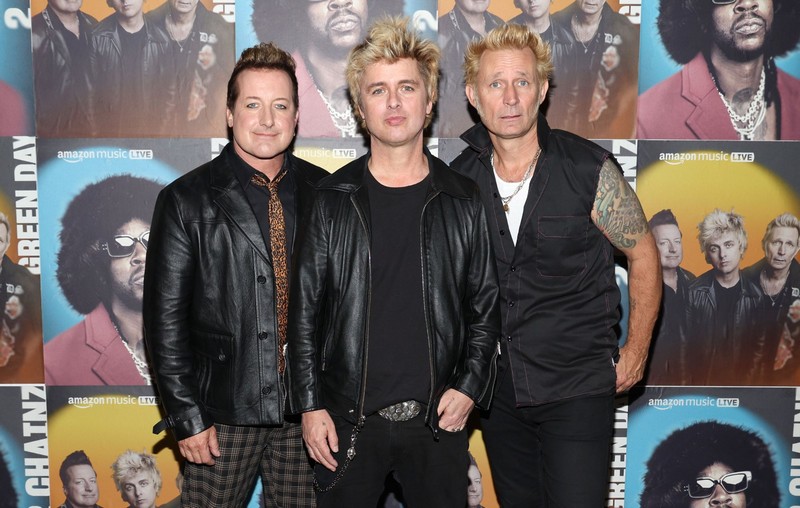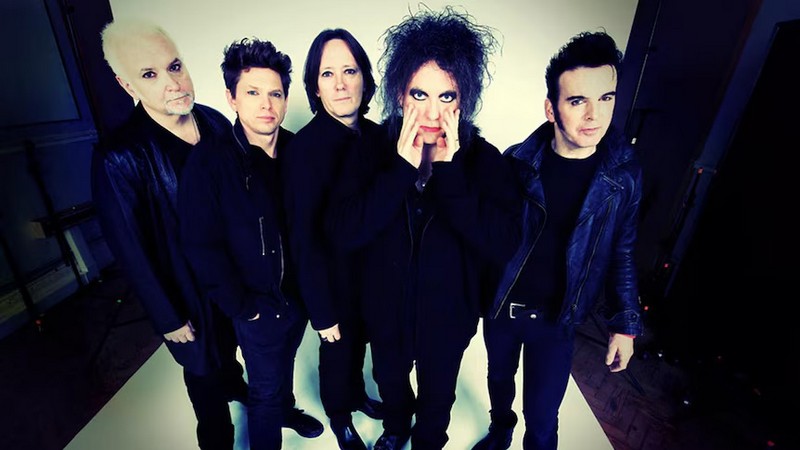 Thirty years after their breakout album Dookie it’s hard to remember that this SF Bay area trio that were inducted into the R&RHoF in 2015, were considered “punk revivalists,” taking their cues from bands of the 80’s. Here on their 14th album, Saviors, Green Day continues to expand their sound, careful not to lose the energy, melodic punch, and edgy lyrics that brought them to the party. Many of the 15 tracks contain obvious connections to the band’s past successes, fast, driving rhythms, guitars front-loaded in the mix, catchy pop-accessible sing-along choruses and plenty of attitude are all immediately familiar, while there are subtle instrumental additions in an attempt to keep things fresh. There’s little doubt that Saviors is tailor made for long-time Green Day fans—a reliable, satisfying invitation to the band’s promised summer stadium tour—if not a particularly groundbreaking effort.
Thirty years after their breakout album Dookie it’s hard to remember that this SF Bay area trio that were inducted into the R&RHoF in 2015, were considered “punk revivalists,” taking their cues from bands of the 80’s. Here on their 14th album, Saviors, Green Day continues to expand their sound, careful not to lose the energy, melodic punch, and edgy lyrics that brought them to the party. Many of the 15 tracks contain obvious connections to the band’s past successes, fast, driving rhythms, guitars front-loaded in the mix, catchy pop-accessible sing-along choruses and plenty of attitude are all immediately familiar, while there are subtle instrumental additions in an attempt to keep things fresh. There’s little doubt that Saviors is tailor made for long-time Green Day fans—a reliable, satisfying invitation to the band’s promised summer stadium tour—if not a particularly groundbreaking effort.
Arriving from the Bay area punk scene, Green Day came up alongside bands like Rancid and The Offspring, with an eye to older bands like The Ramones, Social Distortion, NOFX, and Bad Religion. It was singer/guitarist Billie Joe Armstrong’s smart melodic hooks, clever, earthy lyrics, and the band’s high energy performances that lifted Green Day above the pack. While embracing power pop, the band maintains that early punk attitude and edgier sound.
After the rock opera style albums, American Idiot (2004) and 21st Century Breakdown (2009), and the surprise Broadway hit adaption of the first album, Armstrong & Co. released three experimental albums in 2012, Uno!, Dos!, Tre!, which were met with general apathy and disdain. Revolution Radio (2016) and Father of All Mothers… (2020) were attempts to reconnect to the band’s earliest energy and success, while finding ways to expand and mature their sound, to modest success. With Saviors, Green Day seems to celebrate the band’s earliest hits, accentuating their musical strengths in these new songs, while continuing to allow their sonic imprint to expand where it makes sense.
Armstrong’s lyrics have always reflected a primal response to the angst and woes of life in the modern world, which created a unique bond to teens and wannabe punks. Critical of the powers that be, his lyrics took a more political slant on “American Idiot” where he took on the hypocrisy and injustice of contemporary life. While the opening track here, “The American Dream Is Killing Me,” suggests a similar approach, his take on Capitalism remains vague and less than prescriptive. While his political sympathies show up here and there, much of “Saviors” avoids any sense of manifesto. Meanwhile, self-deprecating lyrics like “Look Ma, No Brains” return to his adolescent mad-at-the world confusion that made songs like “Longview” so impactful 30 years ago.
Brian Q. Newcomb
For more of Brian Q. Newcomb’s music reviews, check out The Fire Note
Other reviews you might enjoy:
- No Obligation (The Linda Lindas) – music review
- Happy Now (Gang of Four) – music review
- SORCS 80 (Osees) – music review

The Fire Note started to create a simple place that could showcase records that we liked. Nothing more, nothing less. The focus has always been about the album and the experience that a great record creates. The Fire Note Webzine builds on this idea by offering an array of content that is all about the enjoyment of music, its pulse and energizing attitude.





